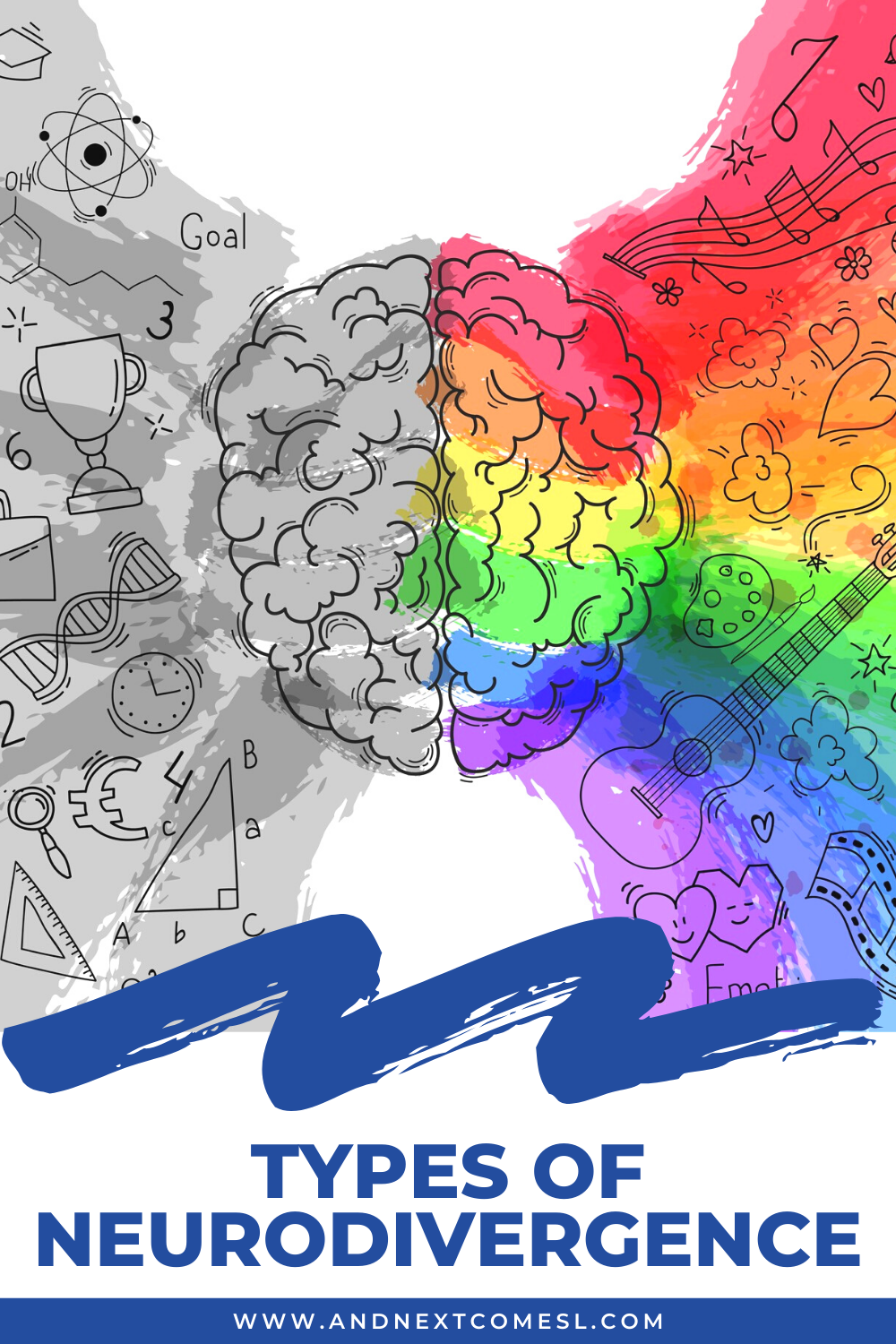Some of the neurodiversity terms like neurodiverse and neurodivergent can be quite confusing, which is why many people confuse these two terms in particular.
It can also be hard to know what's all included under the neurodiversity umbrella in terms of neurodivergence.
Sure, most people already know of neurodivergences such as autism, ADHD, and dyspraxia, for instance. However, there are lots of other conditions and brain differences that can fall under the neurodiversity umbrella.
That's why I put together this list of types of neurodivergence so you can have a better sense of what's all included. Hint: basically anything that isn't a neurotypical brain is considered a form of neurodivergence.
So...What Does Neurodivergence Mean?
Neurodivergence can be defined as "the state of being neurodivergent." (source) Basically, any brain that diverges from the norm falls under the umbrella of neurodivergence. So everything except the neurotypical brain is included here.
Please read here for more information from the individual who coined the term neurodivergent to learn more.
Types of Neurodivergence
Please note that this list is by no means complete.
I know there are likely lots missing from this list, but the idea here is to give you a sense of what can be included. Remember any brain that diverges from the norm can be considered a type of neurodivergence.
So just because something's not on this list below, doesn't mean it isn't a type of neurodivergence. It just means that I might not know about it and are unfamiliar with it (after all, I didn't know about hyperlexia until 2014 and most people still haven't heard of it!).
Here are some types of neurodivergence:
- Autism
- Hyperlexia
- Hypernumeracy
- ADHD/ADD
- Dyspraxia
- Dyslexia
- Dyscalculia
- Dysgraphia
- Synesthesia
- Tourette Syndrome
- Tic disorders
- Obsessive Compulsive Disorder
- Epilepsy
- Seizure disorders
- Intellectual disabilities
- Developmental language disorders
- Developmental coordination disorders
- Specific learning difficulties, differences, and disabilities
- Anxiety
- Trauma
- Down Syndrome
- Fetal Alcohol Syndrome
- Bipolar
- Personality disorders
- Giftedness
- Sensory integration/processing disorder
- Depression
- Auditory processing disorder
- Irlen Syndrome
- Cerebral Palsy
- Apraxia
- Mental illnesses
- Parkinson's
- Multiple Sclerosis
- Disorders of the corpus callosum (agenesis or dysgenesis)
Again, remember that this list isn't exhaustive. However, I hope it gives you a better idea of what types of neurodivergence exist and what can be classified as neurodivergent.



